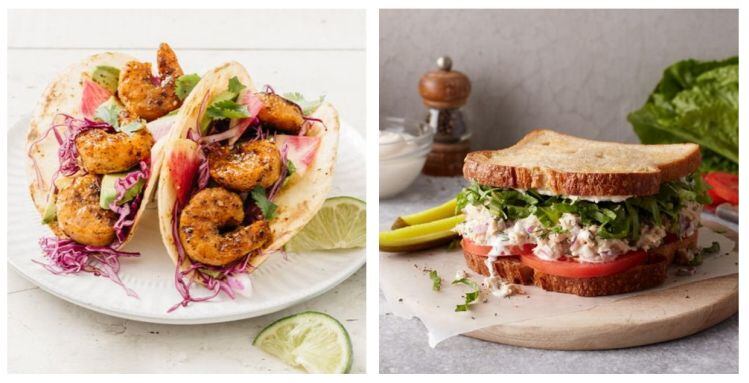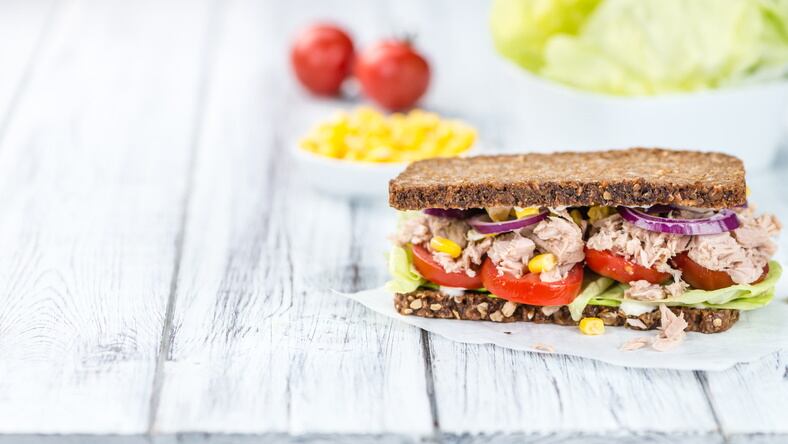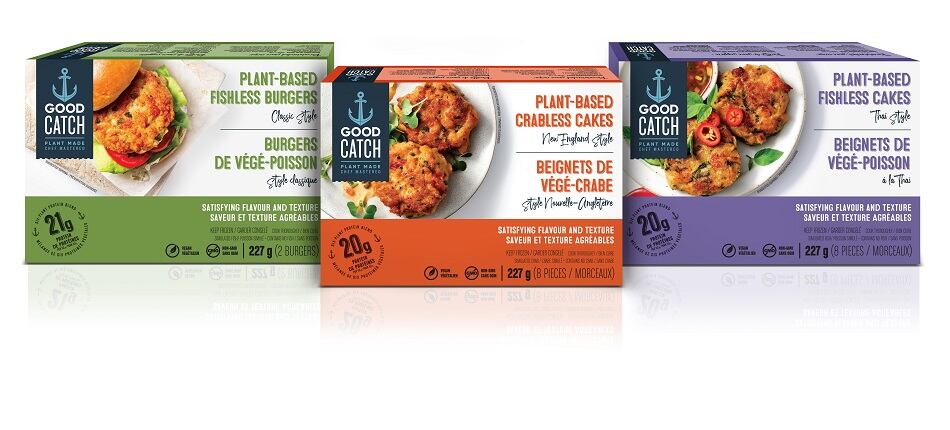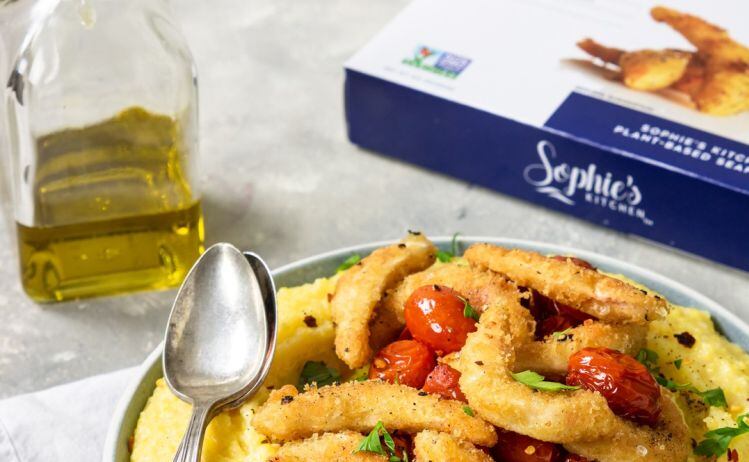Good Catch (which recently opened a new plant and raised $32m in a Series B), now has products in thousands of grocery stores in the US, Canada and the UK and is gearing up for some big foodservice launches; New Wave Foods (which counts meat giant Tyson as an investor) has just raised $18m in a Series A; Nestlé has entered the market in Europe with a tuna alternative; and Impossible Foods has plant-based seafood products in the pipeline.
“We’re only scratching the surface right now,” said Good Catch (Gathered Foods) co-founder and chief culinary officer Chad Sarno, with the US retail market for plant-based seafood worth just $12m in measured channels,* but things are heating up rapidly, he claimed.
“Big animal ag companies like Tyson are getting interested in this space and focused on diversifying their protein sources, and [tuna products giant] Bumble Bee is our distribution partner, so I think this market will accelerate really quickly.”
‘It’s a big white space, and that’s why we jumped into it’
Retailers are all expanding their plant-based offerings, he said, and while scores of brands are now piling into the plant-based beef, chicken and pork segment, there is – not yet at least – much competition in plant-based seafood.
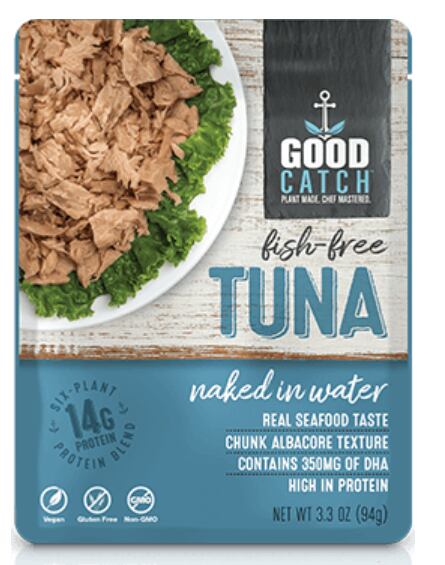
“It’s a big white space, and that’s why we jumped into it. We also wanted to start where we could make a big impact, so we began with tuna [which it sells as a shelf-stable product in pouches] plus we have frozen fish burgers, fish cakes, and crab cakes.
“This as an incredibly exciting opportunity from an innovation standpoint. Around 250-300 species from the oceans are widely consumed globally compared to something like 30 or 40 land animals and our innovation pipeline is not stopping with tuna,” added Sarno, who was speaking to FoodNavigator-USA after announcing a partnership with Whole Foods to sell plant-based deli-style tuna salad – with branded Good Catch stickers - in the retailer’s prepared foods section in selected markets.
Longer term, the foodservice business could dwarf the retail business
The move follows a partnership with Veggie Grill (which sells a plant-based tuna melt in partnership with Good Catch) and is the first of several announcements on the foodservice front we can expect this year, he said.
“We’ve been leaning heavily on our culinary team to develop a curated experience for potential foodservice partners, so we present them with menus to get the conversation started, and we are developing turnkey solutions for foodservice partners, because we think that longer term, the foodservice business could dwarf the retail business.
“We’re looking at everything from higher-end restaurant chains to QSR, delis, and fast food chains, and we’ve had a lot of interest,” added Sarno, who said that making the products in-house protected the firm’s IP but also enabled it to try new things and move more quickly.
Every consumer has certain levers
So why are consumers interested in plant-based seafood, and are the purchase drivers the same as they are for plant-based beef, chicken and pork?
Specific problems associated with seafood - from overfishing to contaminants, pollution, microplastics, fraud, mislabeling, illegal labor practices, habitat damage, and bycatch – are probably less of a purchase driver than a general interest in trying new plant-based products and diversifying protein sources, says Sarno, who uses a proprietary blend of peas, chickpeas, lentils, soy, fava beans and navy beans in his wares (manufactured via a high-moisture extrusion process).
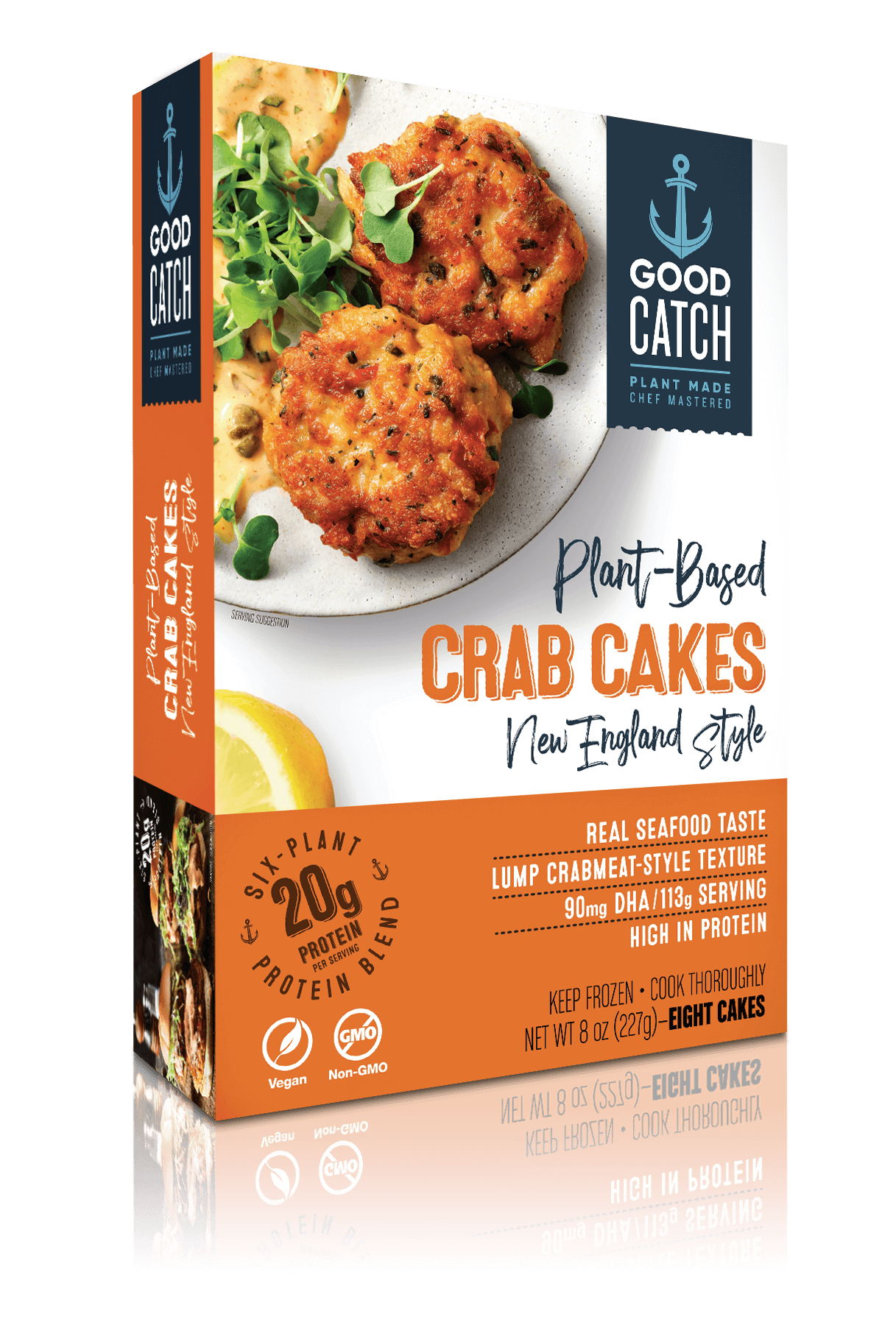
Consumers “still tend to think of fish as ‘clean protein,” he said, but they are beginning to read about over-fishing, microplastics, bycatch, and heavy metals in mainstream publications, so these things may factor more into purchasing decisions for plant- or cell-based alternatives in future.
“Every consumer has certain levers, and seafood is also unusual because there aren’t really people out there with chicken or beef allergies but in the US alone, there are 8-9m people with seafood allergies, mostly shellfish,” he added, noting that pregnant women are also advised to avoid some fish known to have higher mercury levels (although they are still encouraged to eat 2-3 servings of fish a week).
Good Catch ‘moving to a new formulation that eliminates algal oil’
But what about other factors that make conventional fish attractive from a nutritional standpoint, such as long-chain omega-3 fatty acids EPA and DHA (which fatty fish accumulate after eating microalgae)?
While Good Catch has been highlighting the DHA content in its wares (from algal oil) on the front of its packaging, it is “moving to a new formulation that eliminates that ingredient,” says the company, “as it will help prolong shelf-life of our products long-term.”
However, it is “exploring alternative ingredients that would provide omega-3 fatty acids.”
New Wave Foods: ‘The texture of shrimp is very particular, with the snap and succulent bite’
At San Francisco-based New Wave Foods, which has been testing its plant-based shrimp on a small scale over the past couple of years to get feedback, 2021 is the year it hopes things will really take off, with a national foodservice launch with “some big distributors and impactful customers” supported by investment capital from Tyson Ventures, among others.
While the original formulation featured soy protein with brown algae and natural flavors, the current recipe is based on seaweed extract (for texture as well as flavor) and mung bean protein, said co-founder Michelle Wolf, who said seafood muscle fibers tend to be shorter in length with a higher moisture content than beef or chicken, for example.
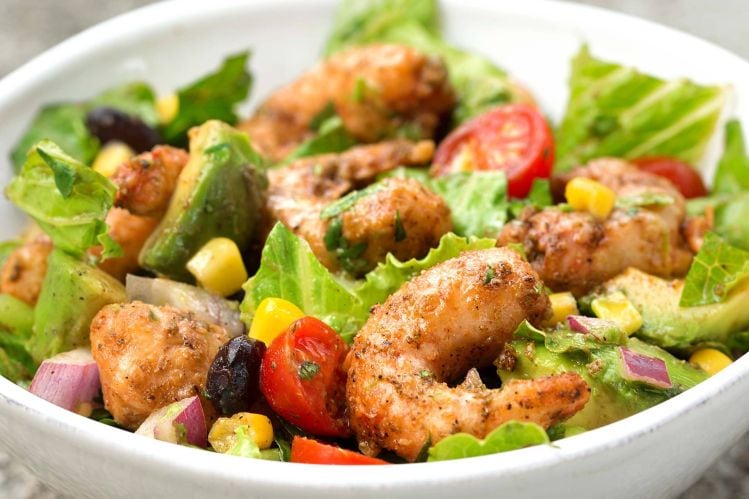
“The texture of shrimp is very particular, with the snap and succulent bite, and we were focused on getting that right, as with a shrimp you’re eating the whole body of an animal. The flavor is also very nuanced, as it’s a lot of things working together, so we had to do a lot of work to get it right.”
As for nutrition, she said, “Not all seafood has the same level of omega-3 fatty acids [shrimp has way less than, say, salmon], but we are looking at how we can match or improve the nutrition of [conventional] seafood.” That said, the products rolling out this year do not contain DHA, she confirmed.
Starting with foodservice
While the foodservice market has been heavily disrupted by COVID-19, the company’s strategic focus remains on this market, said Wolf, who noted that 80% of shrimp consumed in the US is consumed outside the home.
Choosing shrimp (a $9bn market in the US alone) as its first product was also a strategic move, she said, noting that Americans eat an estimated 1.5bn pounds of it annually, making it the most consumed seafood in the US, ahead of salmon and tuna.
However, New Wave is also working on lobster, scallops, and crab, said Wolfe, who said the fact that a growing number of fast food and restaurant chains now sell plant-based meat, egg, and dairy products has made a big difference.
"Impossible and Beyond have really shown that this isn't a niche market and that plant-based products are delicious."
*According to data from SPINS, US retail sales of plant-based seafood rose 23.8% to $12.2m in the year to January 24, 2021.

